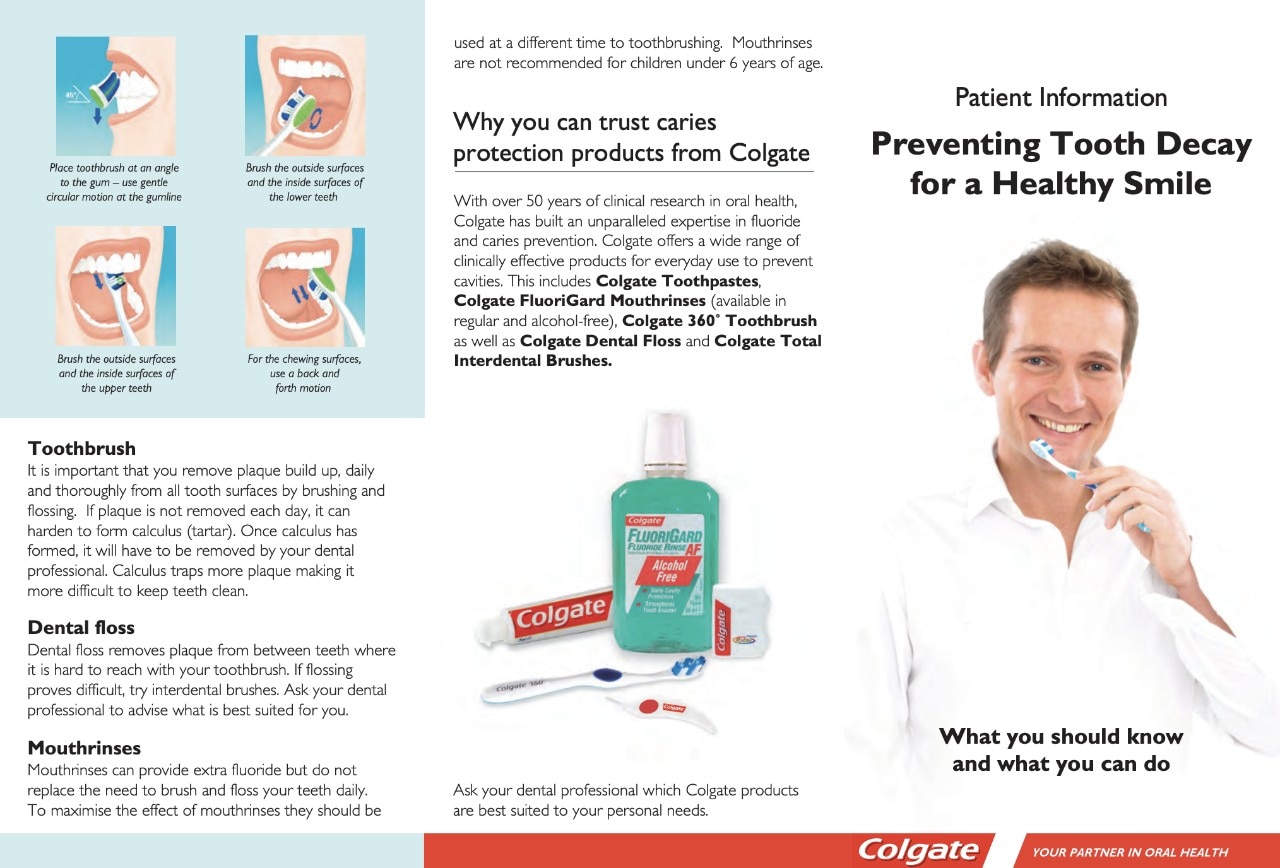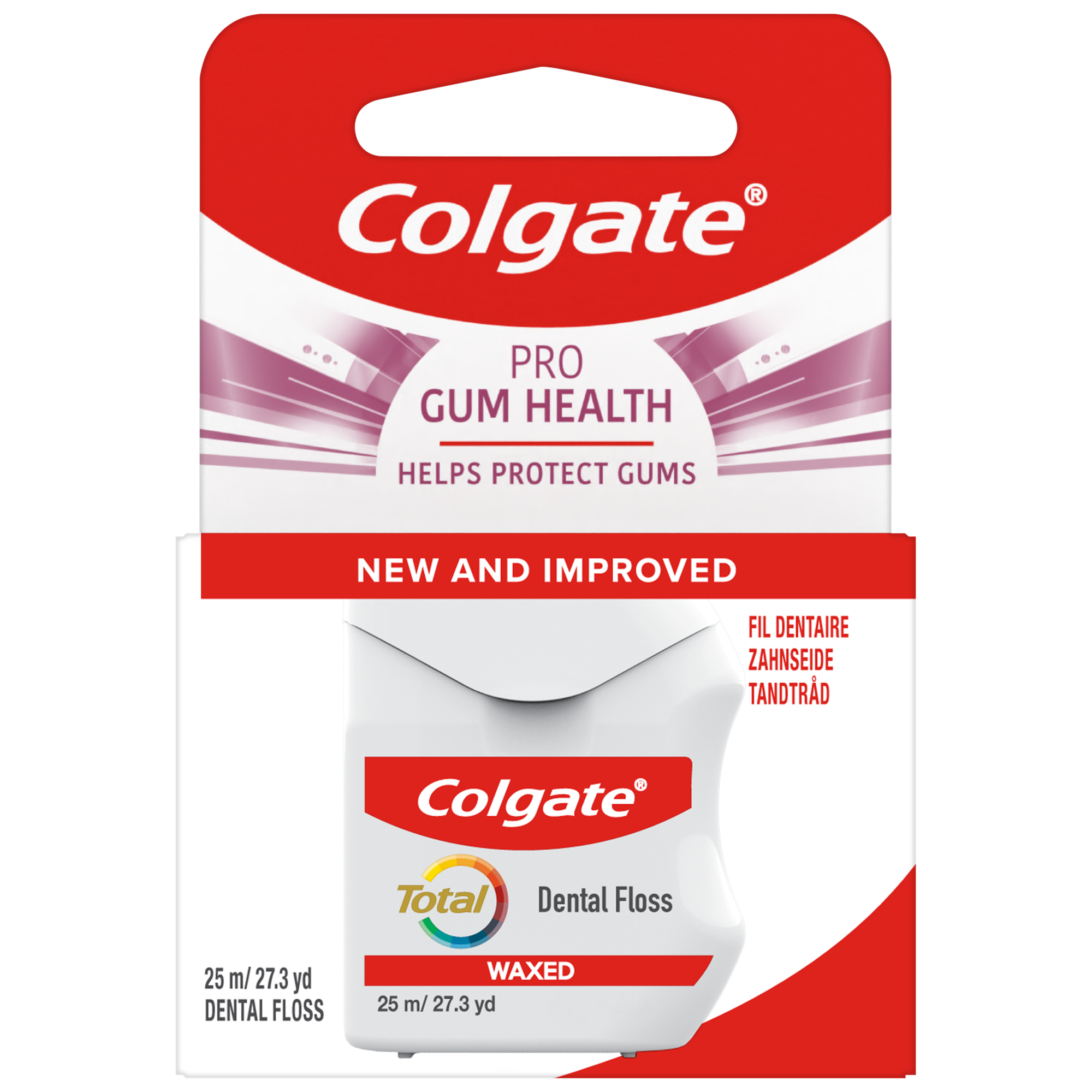
What's in a tooth?
Enamel covers the crown and is the hardest tissue in the body. Dentine constitutes the major part of the tooth and gives teeth their colour. Pulp is rich in nerves and blood vessels.

What is dental caries?
Dental caries or tooth decay is caused by loss of minerals from the tooth surface. This is called demineralisation. Demineralisation occurs when sugars in our diet combine with bacteria found in dental plaque to produce plaque acids. Plaque acids attack the enamel surface and frequent acid attacks (periods of demineralisation) lead to tooth decay.
An early sign of demineralisation may appear as a white spot on the tooth. At this early stage, lost minerals can be replaced with the help of fluoride. If minerals continue to be lost, a hole (cavity) forms in the tooth and a filling is needed to repair the damage.
Tooth decay can occur on all surfaces of the teeth. When gums recede decay can also occur on the root surfaces of teeth.

What can you do to prevent caries?
- Brush your teeth twice a day using a fluoride toothpaste. Use a toothpaste with an appropriate level of fluoride both last thing at night and on one other occasion
- Remove plaque thoroughly from all tooth surfaces during toothbrushing. You can use floss or interdental brushes to remove plaque from in-between teeth, ask your dental professional to show you how. You can check the effectiveness of your toothbrushing by using disclosing tablets which show any remaining plaque left behind
- Use a soft or medium toothbrush. Brush teeth in a set pattern so that you don’t miss any teeth
- Check your diet to reduce the amount and frequency of sugar – especially in-between meals
- If you suffer from a dry mouth, possibly due to medication affecting your saliva flow, talk to your dental professional
- Visit your dentist regularly for dental check-ups
How does fluoride work?
Fluoride helps to prevent demineralisation of the tooth surface caused by plaque acids. Fluoride forms a reservoir on the tooth surface and releases fluoride ions during periods of acid attack. This reduces the amount of mineral lost from the tooth surface and promotes repair of early tooth decay.

Why is caries protection important if you have a dry mouth?
Reduced saliva flow results in a dry mouth. Saliva is the body’s natural defence against tooth decay. Saliva helps to wash away plaque acids and replaces lost minerals back into the tooth surface.
A dry mouth caused by reduced saliva flow can mean you your teeth are at greater risk of tooth decay. Smoking, caffeine, and some medicines can affect salivary glands reducing saliva flow. Avoid sucking on sweets or drinking sugary drinks as this can result in rapid tooth decay. If you suffer from a dry mouth, talk to your dental professional.
Effective oral care products for caries protection
Fluoride Toothpaste
Toothbrushing with fluoride toothpaste helps to prevent tooth decay. For most, using toothpaste with the appropriate level of fluoride twice daily will provide protection against tooth decay. Studies have shown that toothbrushing twice a day reduces the risk of tooth decay much more than toothbrushing only once a day. After toothbrushing just spit out the excess toothpaste rather than rinsing out with water. Rinsing after toothbrushing washes away the fluoride protection of the toothpaste.
Additional fluoride protection may be needed if the risk of tooth decay is higher due to a dry mouth or frequent intakes of sugary food and drinks. Your dental professional may advise additional fluoride in the form of a fluoride mouthrinse, high fluoride toothpaste or professionally applied fluoride varnish.

Toothbrush
Use a soft or medium toothbrush. Ask your dental professional if you could benefit from using an electric toothbrush.
Dental floss
Dental floss removes plaque from between teeth where it is hard to reach with your toothbrush. If flossing proves difficult, try interdental brushes. Ask your dental professional to advise which would be best for you and to show you how.
Mouthrinse
Using a fluoride mouthrinse can provide extra fluoride. To maximise the effect of fluoride mouthrinses they should be used at a different time to toothbrushing. Mouthrinses are not recommended for children under 6 years of age.
Join us
Get resources, products and helpful information to give your patients a healthier future.
Join us
Get resources, products and helpful information to give your patients a healthier future.







